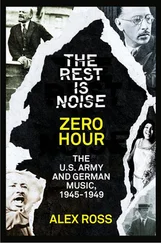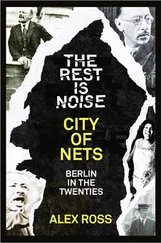At the height of the madness, conservatories were closed and orchestras shut down. The few composers who continued working were confined to the task of perfecting Jiang Qing’s “shining-star models” of Communist musical theater—ballets and operas such as Red Detachment of Women , The Red Lantern , and Taking Tiger Mountain by Strategy (a title later ironically appropriated by Brian Eno). These works were thuggishly simple in design, relying on a kitschy blend of pentatonic tunes and Tchaikovskyan Romanticism. Yet they hinted at a new direction for Chinese composition. At the same time that Takemitsu was mixing strings and taiko drums in the soundtrack for Woman in the Dunes , Wu Zuqiang and Du Mingxin, the composers of Red Detachment of Women , used makeshift but effective combinations of Western and Chinese timbres.
Mao died in 1976, and the conservatories reopened in 1978. The first classes in composition brought forth a remarkable roster of talent: Tan Dun, Chen Yi, Zhou Long, Bright Sheng, and Guo Wenjing, among others. All were children of the Cultural Revolution, and their ignorance of tradition turned out to be a sort of bliss: they could start with a blank slate. Tan spent much of his childhood in a remote village in Hunan Province, singing folk songs while planting rice in the fields and playing fiddle in a provincial Peking opera troupe. When, at his entrance exam at the Central Conservatory in Beijing, he was told to play something by Mozart, he innocently asked his examiners, “Who’s Mozart?”
In the eighties the Chinese “New Wave” composers caught up fast, treading the progressive path from Debussy to Boulez to Cage. Yet they did not forget the rural musical traditions to which they had been exposed while doing compulsory labor on collective farms. Tan juxtaposed Cagean water and paper noises with lavish Romantic orchestration and humble folkish melodies that might have brought a smile to the face of Jiang Qing. The irony is that most of the New Wave composers ended up in America, practicing cultural interpenetration within the familiar university setting. Back home, Western music commanded an enormous audience, but the repertory tended to stop short at Tchaikovsky. If the Chinese classical business can accommodate new music in the coming century, the center of gravity may shift permanently eastward.
Конец ознакомительного фрагмента.
Текст предоставлен ООО «ЛитРес».
Прочитайте эту книгу целиком, купив полную легальную версию на ЛитРес.
Безопасно оплатить книгу можно банковской картой Visa, MasterCard, Maestro, со счета мобильного телефона, с платежного терминала, в салоне МТС или Связной, через PayPal, WebMoney, Яндекс.Деньги, QIWI Кошелек, бонусными картами или другим удобным Вам способом.












